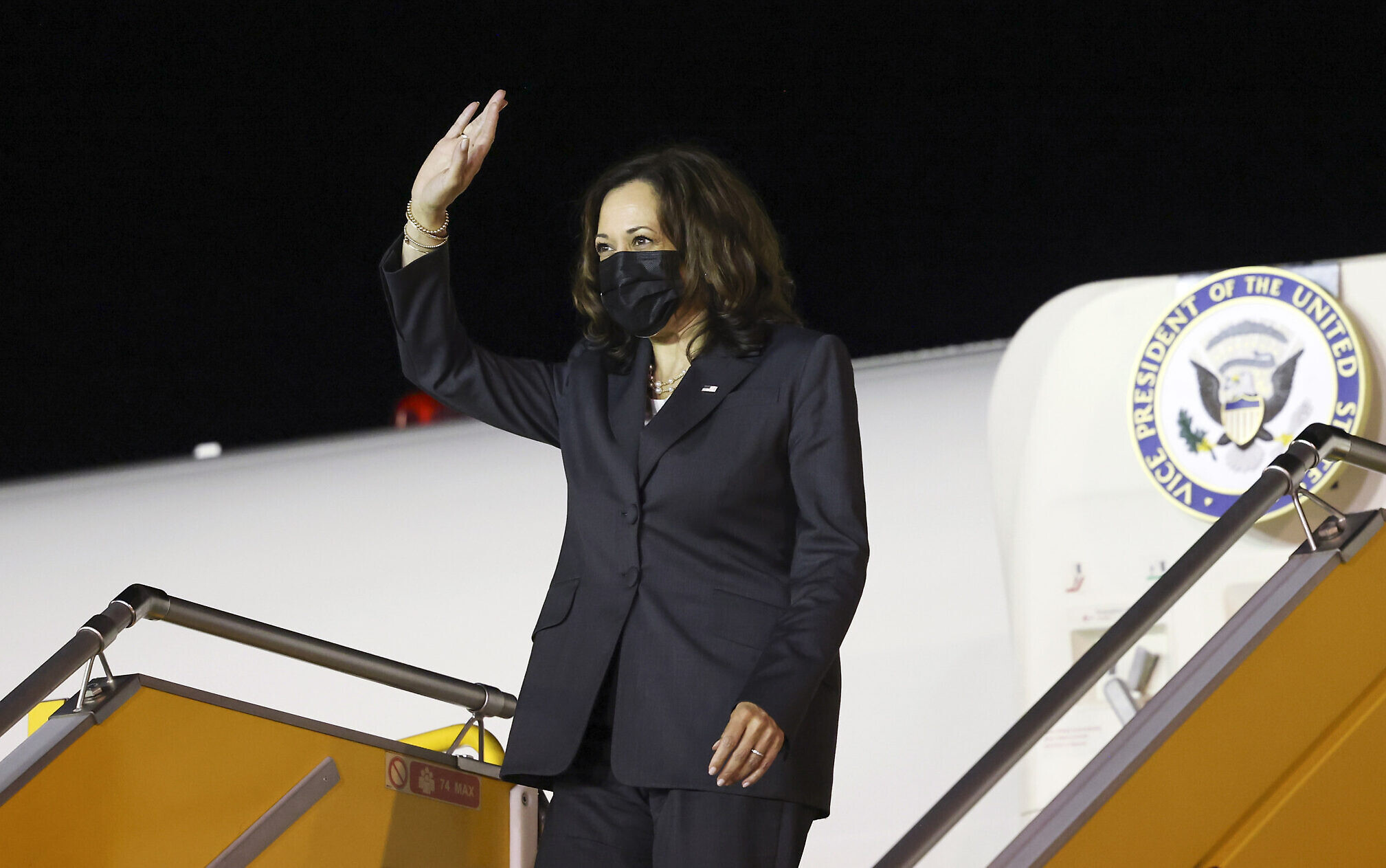Vice President Kamala Harris's visit to Vietnam has been postponed due to a probable case of Havana Syndrome.
WASHINGTON, DC - Vice President Kamala Harris' trip to Vietnam was postponed Tuesday after her office received reports of a probable case of Havana Syndrome, a strange illness that has plagued U.S. diplomats around the world.
The State Department said Harris's office was made aware of a "recent potential health incident" in Hanoi, the capital of Vietnam, referring to what the US government previously called Havana Syndrome, a series of unexplained health incidents first reported in 2016. U.S. Embassy diplomats and staff in Cuba.
"The decision to continue the vice president's trip was taken after careful consideration," the statement said, but without any details.
According to NBC News, at least two US ambassadors will be medically evacuated from the country after "abnormal acoustic events" occurred over the weekend.
Due to privacy and security concerns, the State Department official declined to confirm the medical evacuation, but said he was aware of reports of possible unexplained health issues in Vietnam.
While the agency is unable to discuss individual situations, a spokesperson said anyone reporting an unexplained health episode "receives the attention they need, including medical evacuation if needed. ". Jen Psaki, a White House spokeswoman, then clarified that there was no confirmation and that the incident had been reported to embassy officials before Harris arrived in Vietnam. No one traveling with the vice president was injured, she said.
Harris was in Singapore for a three-day tour, where she gave a foreign policy speech accusing China of pressure and intimidation during military provocations in the South China Sea. She also said the United States will host an Asia-Pacific economic cooperation summit in 2023 to demonstrate the country's commitment to the region.
Harris will meet with Vietnamese authorities, including Prime Minister Pham Minh Chin, to discuss regional security, economic cooperation and the COVID-19 pandemic.
The vice president's first overseas trip to Guatemala was delayed in June after her plane was forced to return to Andrews Joint Base due to a mechanical failure. Harris' delay in Singapore was over three hours, which is unusual for a Presidential and Vice Presidential trip.

As the number of cases increased, Republicans and Congressional Democrats pressured the Biden administration to investigate and determine the cause of the mysterious illness.
Earlier this month, a bipartisan group of senators introduced legislation to create a post on the White House National Security Council to coordinate the federal government's response and ensure victims receive medical attention .
Government officials and experts still don't know what is causing the symptoms, but a National Academy of Sciences study concluded that directed pulsed RF energy was the most likely explanation. Intelligence officials, diplomats and other U.S. officials have been suspected of doing business in Cuba, China, Europe and the United States.
According to the report, most people with Havana Syndrome developed a loud noise, a feeling of pressure or intense vibration, nausea, or a headache.
The State Department said Harris's office was made aware of a "recent potential health incident" in Hanoi, the capital of Vietnam, referring to what the US government previously called Havana Syndrome, a series of unexplained health incidents first reported in 2016. U.S. Embassy diplomats and staff in Cuba.
"The decision to continue the vice president's trip was taken after careful consideration," the statement said, but without any details.
According to NBC News, at least two US ambassadors will be medically evacuated from the country after "abnormal acoustic events" occurred over the weekend.
Due to privacy and security concerns, the State Department official declined to confirm the medical evacuation, but said he was aware of reports of possible unexplained health issues in Vietnam.
While the agency is unable to discuss individual situations, a spokesperson said anyone reporting an unexplained health episode "receives the attention they need, including medical evacuation if needed. ". Jen Psaki, a White House spokeswoman, then clarified that there was no confirmation and that the incident had been reported to embassy officials before Harris arrived in Vietnam. No one traveling with the vice president was injured, she said.
Harris was in Singapore for a three-day tour, where she gave a foreign policy speech accusing China of pressure and intimidation during military provocations in the South China Sea. She also said the United States will host an Asia-Pacific economic cooperation summit in 2023 to demonstrate the country's commitment to the region.
Harris will meet with Vietnamese authorities, including Prime Minister Pham Minh Chin, to discuss regional security, economic cooperation and the COVID-19 pandemic.
The vice president's first overseas trip to Guatemala was delayed in June after her plane was forced to return to Andrews Joint Base due to a mechanical failure. Harris' delay in Singapore was over three hours, which is unusual for a Presidential and Vice Presidential trip.

As the number of cases increased, Republicans and Congressional Democrats pressured the Biden administration to investigate and determine the cause of the mysterious illness.
Earlier this month, a bipartisan group of senators introduced legislation to create a post on the White House National Security Council to coordinate the federal government's response and ensure victims receive medical attention .
Government officials and experts still don't know what is causing the symptoms, but a National Academy of Sciences study concluded that directed pulsed RF energy was the most likely explanation. Intelligence officials, diplomats and other U.S. officials have been suspected of doing business in Cuba, China, Europe and the United States.
According to the report, most people with Havana Syndrome developed a loud noise, a feeling of pressure or intense vibration, nausea, or a headache.
Comments
Post a Comment